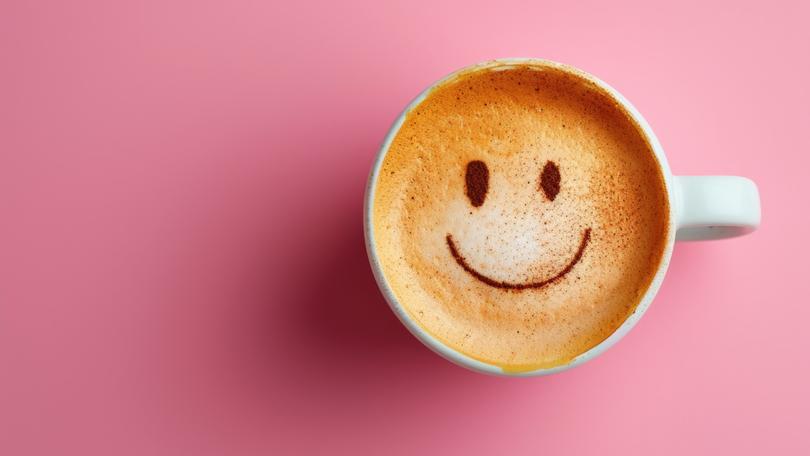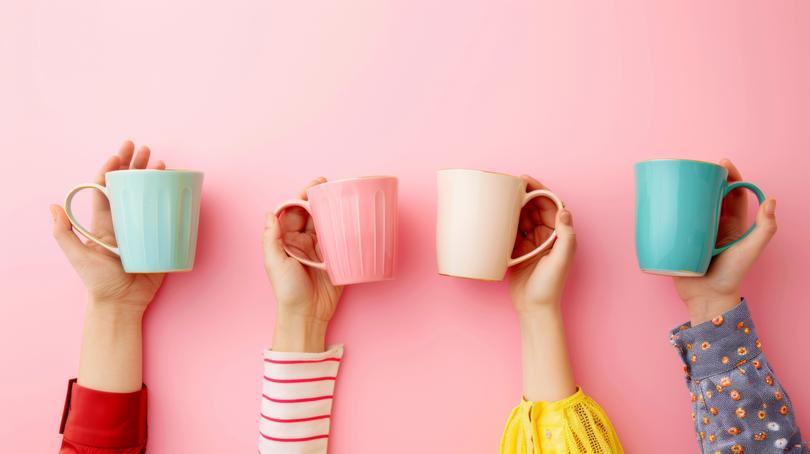CNBC: Don’t believe these three myths about coffee, say registered dietitians
Despite its popularity, there are plenty of myths about coffee and it can be difficult to know what’s true. To get to the bottom of what’s fact and what’s fiction, we asked registered dietitians.

Despite its popularity, there are plenty of myths about coffee and it can be difficult to know what’s true.
On TikTok alone, there are 52 million posts doling out advice about and debating the benefits and drawbacks of drinking coffee first thing in the morning.
To get to the bottom of what’s fact and what’s fiction, we asked registered dietitians Maddie Pasquariello and Roxana Ehsani about the coffee myths they come across the most.
Sign up to The Nightly's newsletters.
Get the first look at the digital newspaper, curated daily stories and breaking headlines delivered to your inbox.
By continuing you agree to our Terms and Privacy Policy.Three coffee myths debunked by dietitians:
Myth #1: ‘Coffee is bad for you’
“One thing that is pretty genuinely agreed upon in a wide sense in the nutrition world is that coffee is pretty good for us,” Pasquariello tells Make It.
As long as you’re adhering to the dietary guidelines of no more than 400 milligrams of caffeine, or about four cups of coffee, a day, “you have nothing to worry about, and it’s probably exerting benefits for you.”
Coffee is rich in polyphenols, antioxidants that have been found to prevent the development of certain chronic illnesses like cardiovascular disease.
Additionally, “coffee is a natural stimulant that can help make you more alert, provide an increase in energy, productivity and improve athletic performance,” Ehsani says.
“But be mindful of things you may add to it that make it unhealthy: creamers, sugars, syrups, honey.”
Myth #2: ‘You shouldn’t drink coffee first thing in the morning’
Dietitians, including Pasquariello and Ehsani, actually recommend their clients get their coffee consumption in before noon because the peak effects of caffeine can be felt for up to six hours and potentially affect a person’s sleep.
“I think one of the most common times that people tend to overload on their caffeine, thinking they’re really tired, is that kind of 2 p.m., 3 p.m. [or] 4 p.m. slump,” Pasquariello says. Instead of reaching for another cup of coffee at those times, she suggests grabbing a snack that’s high in fibre, healthy fats or protein for an energy boost.
It’s totally fine to have coffee first thing in the morning, Pasquariello says, but she advises that people with acid reflux may want to drink water and eat a bit of food first.
Pasquariello says clients have told her that drinking coffee first thing doesn’t always feel so great. “They get a little jittery. They might feel a little bit of stomach upset.”
“I would only recommend that people don’t forget to drink a glass of water first or along with [coffee] too,” Ehsani says.

Myth #3: ‘More than 2 cups of coffee a day is too much’
Deepak Chopra told CNBC Make It he drinks two to three cups of coffee before noon. This may sound like too many cups to the average person, but Pasquariello and Ehsani say it’s actually within a healthy range.
“Drinking two to three cups before noon is safe to do,” Ehsani says. “As long as they don’t greatly surpass 400 milligrams of caffeine,” which includes the caffeine in sodas, teas, energy drinks and chocolate.
Many dietitians also suggest having food and water before your daily cold brew or latte “because caffeine is an appetite suppressant.”
Pasquariello suggests that “if you are combining that [amount] in a tight window of time, be mindful of what you’re experiencing.” Make sure that you’re not using coffee to replace meals and pay close attention to if it’s affecting your appetite, she says.
Originally published on CNBC
